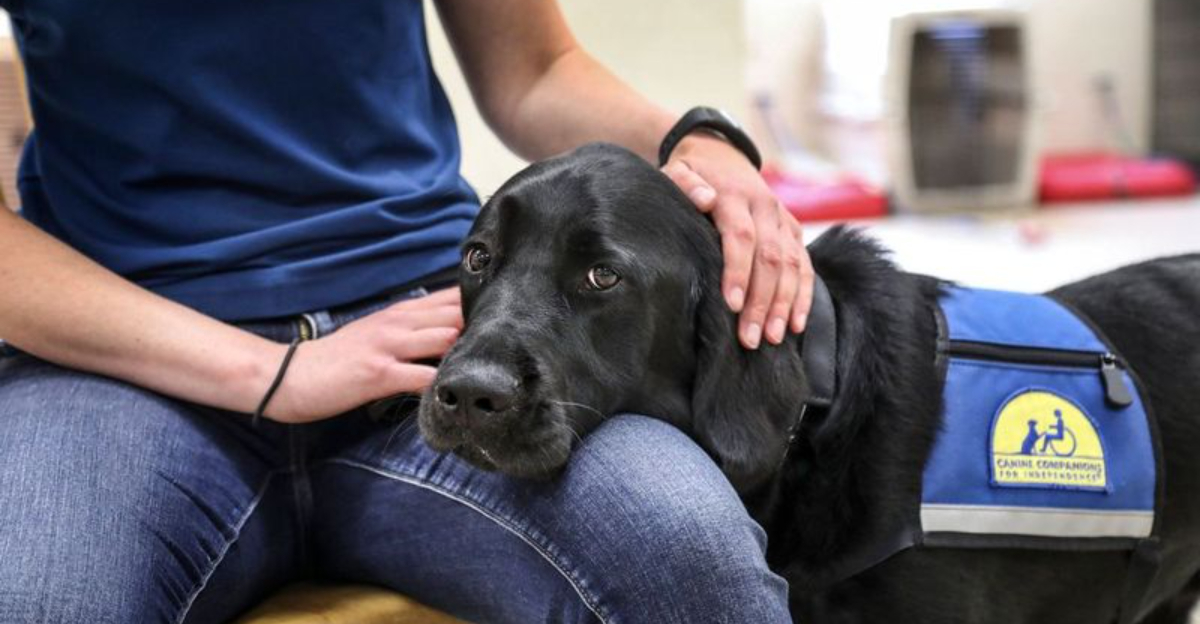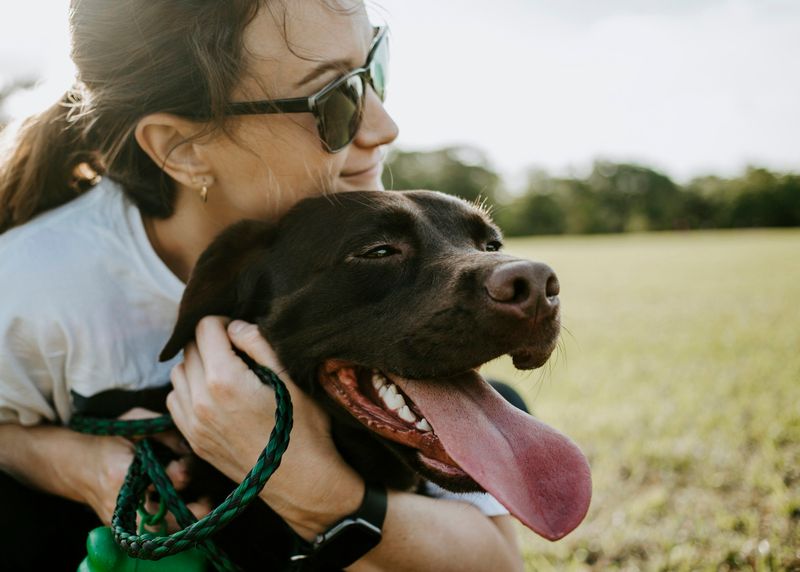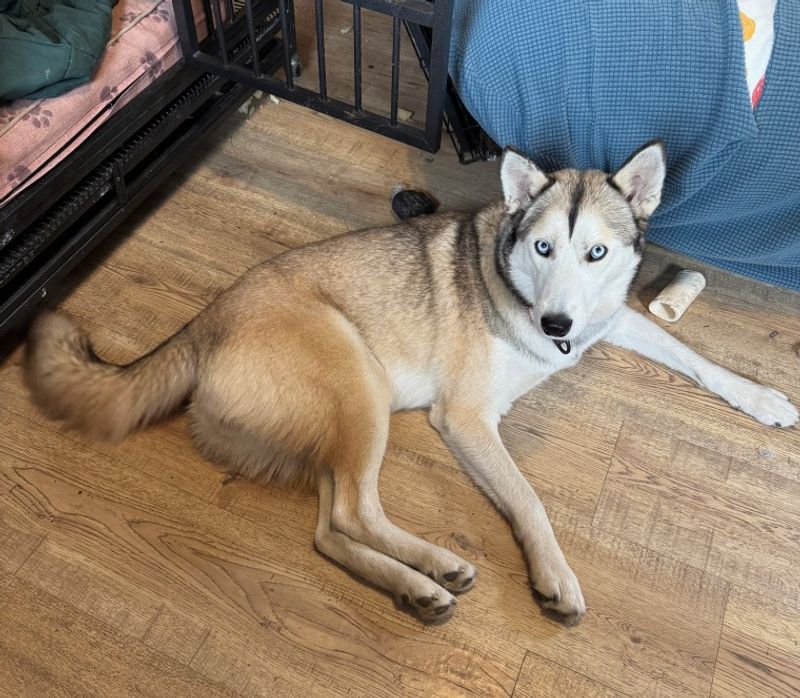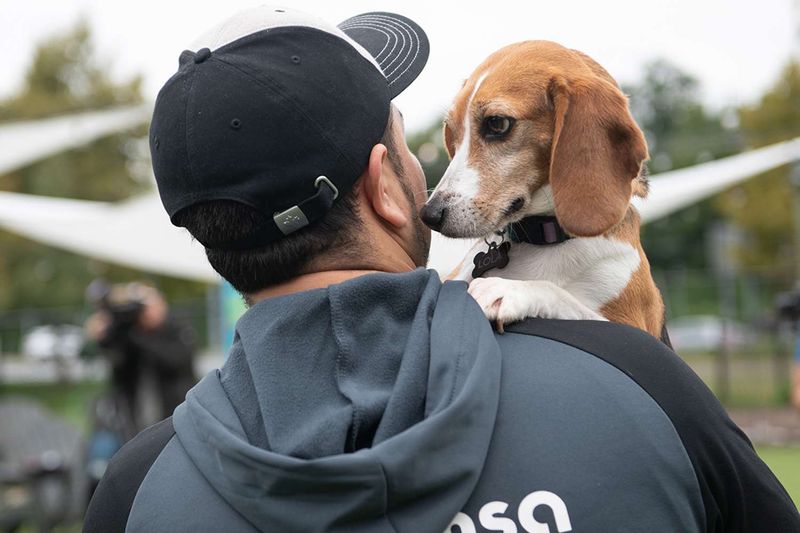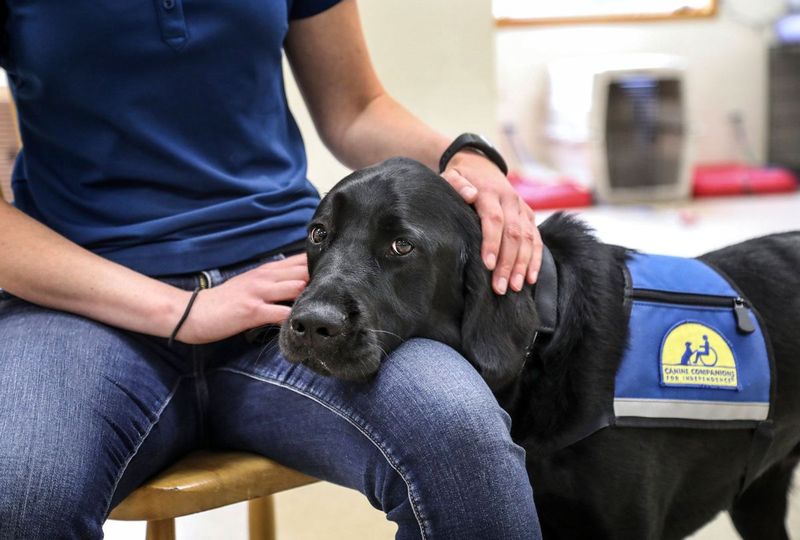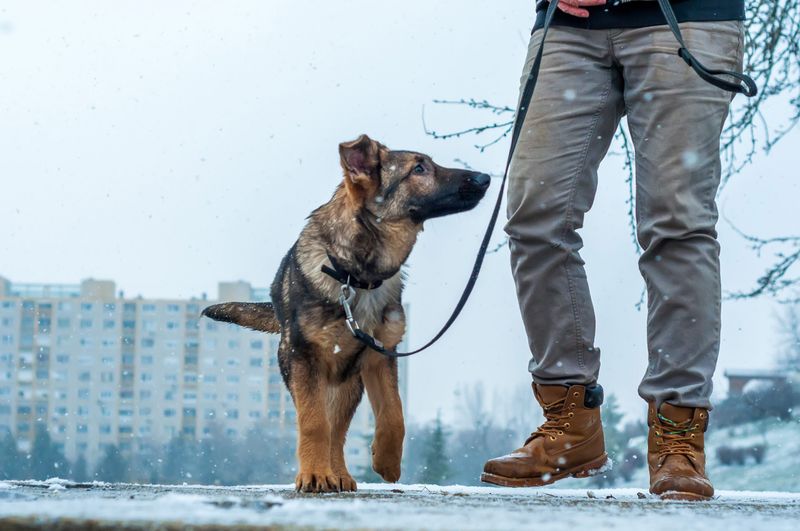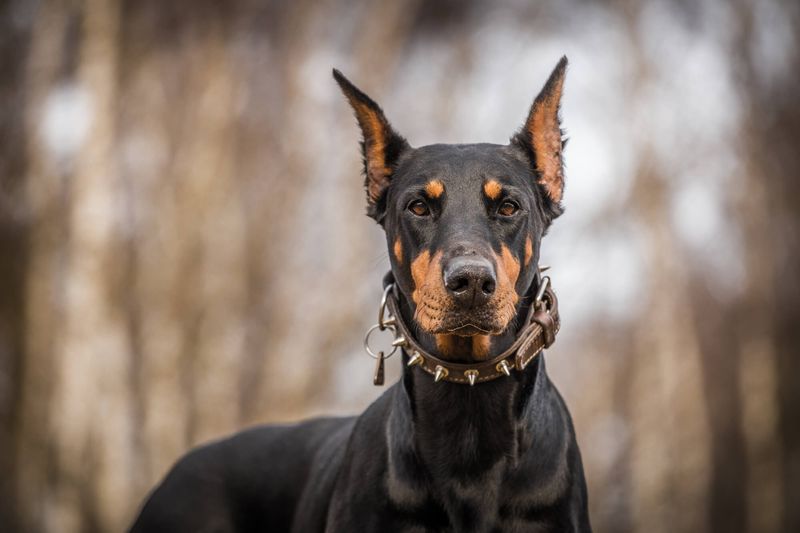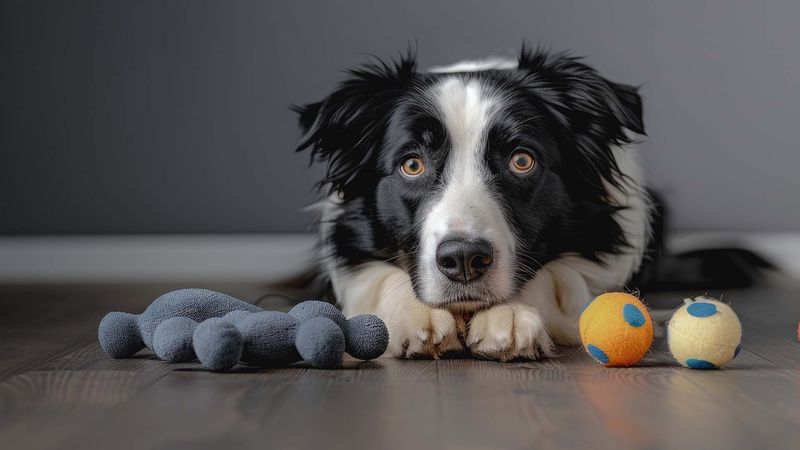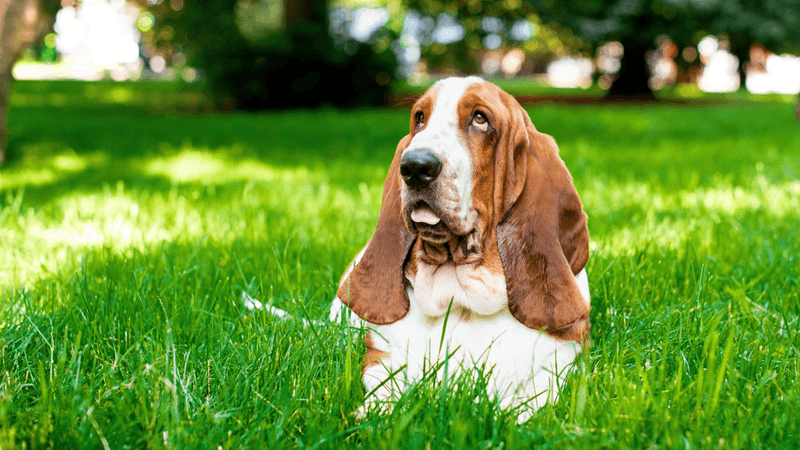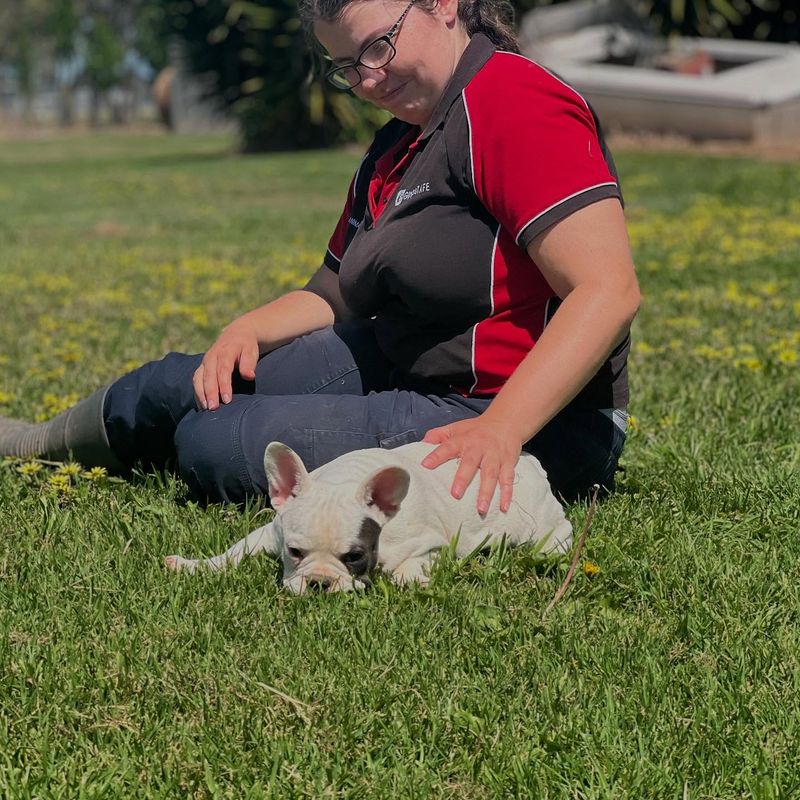For veterans transitioning from military service, the battle with PTSD often continues long after they return home. Known for their loyalty and supportive nature, dogs have become indispensable companions for many veterans. These devoted animals provide not only friendship but also therapeutic benefits that can significantly improve the quality of life for those struggling with PTSD. In this article, we explore ten distinct ways dogs are making a difference in the lives of veterans, offering comfort, joy, and a sense of normalcy. Let’s discover the unique roles these incredible animals play in aiding our heroes’ recovery.
Stress Reduction
The simple act of playing fetch with a dog can be a powerful stress reliever. Engaging in such activities increases the production of endorphins, the body’s natural stress relievers.
For veterans, this playful interaction offers a break from their daily anxieties and responsibilities. The focus shifts from internal worries to the external joy of the moment.
Moreover, the rhythmic motion of throwing a ball and watching a dog’s exuberant chase can be meditative, providing a mental escape and encouraging relaxation.
Routine Establishment
Establishing a routine can be challenging for those who have served in the military. Dogs require regular feeding, walking, and grooming, which encourages a structured daily life.
For veterans, this routine can be a grounding force, providing stability and predictability. The responsibility of caring for a dog ensures that they rise each morning with purpose.
This sense of duty and structure can be particularly beneficial in managing PTSD symptoms by reducing chaos and promoting order in everyday life.
Social Interaction
Dogs are natural social connectors. Taking a dog for a walk often leads to conversations with fellow dog lovers or curious passersby.
For veterans who may feel withdrawn or hesitant to engage, these interactions can be a gentle way to re-enter social settings. The presence of a dog often breaks down barriers and provides common ground.
This increased social interaction helps build confidence and reduces the sense of alienation that many veterans experience.
Emotional Support
Imagine the warmth of a gentle embrace that never judges. Dogs provide emotional support through their consistent presence and unconditional love. With their intuitive nature, these loyal companions sense when a veteran feels anxious or distressed.
A soft nuzzle or gentle paw can ground a person in the present moment, helping to ease worries. This emotional bond fosters a sense of belonging and reduces feelings of isolation.
For veterans, knowing that their canine friend is always there to listen without offering unwanted advice is a comforting thought.
Physical Activity Encouragement
Physical activity is vital for mental health, and dogs are enthusiastic exercise partners. Whether it’s a brisk walk or a jog, dogs motivate their owners to stay active.
Veterans benefit from the endorphin release and improved physical health that accompanies regular exercise. This physical engagement helps in managing weight, reducing stress, and boosting mood.
Moreover, the companionship of a dog makes these activities more enjoyable and less like a chore, fostering a positive association with physical fitness.
Security and Safety
For veterans, feeling safe is paramount. Dogs, especially those trained for protection, provide an added layer of security. Their keen senses can detect unusual sounds or movements, offering early warnings of potential danger.
This vigilance allows veterans to relax, knowing they have a reliable partner safeguarding their environment.
The peace of mind that comes from this sense of security is invaluable, helping veterans to focus on healing and rebuilding their lives without constant fear.
Companionship
An enduring friendship can be found in the eyes of a loyal dog. For veterans, a canine companion offers unwavering loyalty and companionship.
This bond is crucial for those who may feel disconnected from others. Dogs listen without judgment, providing a non-verbal form of communication that speaks volumes.
Sharing everyday moments with a dog can make a house feel like a home, filling the void of loneliness and offering a comforting presence that reassures and uplifts.
Therapeutic Touch
The soothing act of petting a dog can have therapeutic benefits. Physical contact releases oxytocin, a hormone associated with bonding and stress relief.
For veterans, this gentle touch can reduce anxiety and promote a sense of calm. Dogs, with their soft fur and gentle demeanor, invite touch and connection.
This simple interaction serves as a reminder of the power of touch, fostering emotional healing and providing comfort in times of distress.
Emotional Regulation
Dogs are intuitive creatures, often sensing emotional shifts in their human companions. They can aid veterans in identifying and regulating their emotions. When feelings of anger or frustration arise, a dog’s calm presence can help diffuse tension.
This relationship encourages mindfulness, allowing veterans to process emotions in a healthy manner.
Additionally, the responsibility of caring for a dog promotes self-regulation, as veterans learn to manage their own responses to better care for their four-legged friends.
Unconditional Love
Love without conditions is a powerful healer. Dogs love wholeheartedly, regardless of past mistakes or current struggles. For veterans, this unwavering affection can be transformative.
It reinforces self-worth and provides a sense of acceptance that may be lacking in human interactions.
With a wagging tail and loving eyes, dogs remind veterans that they are cherished, instilling hope and renewing faith in the goodness of life. This profound bond nurtures healing and offers a safe haven from emotional storms.
